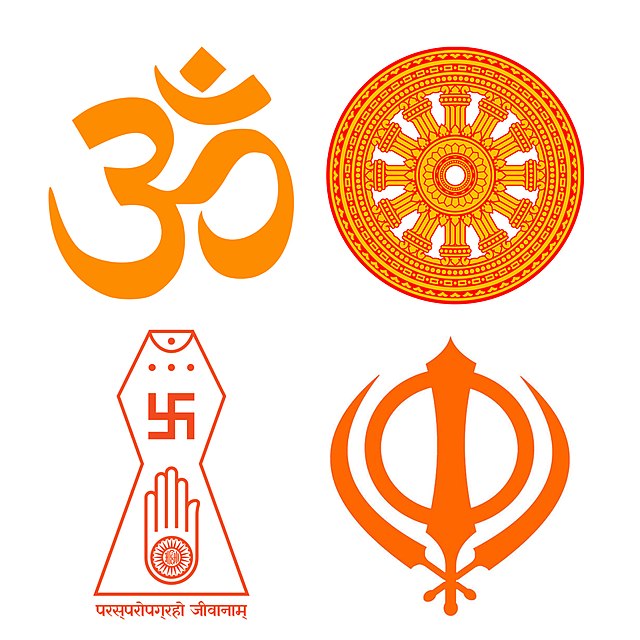Christianity
Christianity is a monotheistic faith, which means that its adherents believe in just one God.
God’s worship is a fundamental part of Christianity.
Christians believe in the divinity of the Father (God), Son (Jesus), and Holy Spirit, as portrayed by the Holy Trinity.
Christian doctrines are founded on the Old and New Testaments, which comprise the Holy Bible. The Christian bible is available in numerous editions; not all denominations use the same text.
After three days in the tomb, Jesus rose from the dead and went to heaven to be rejoined by God.
Christians believe in a second coming in which Jesus will return to Earth and take Christian believers with him to heaven.
The Ten Commandments are central to Christian doctrine.
Islam
The Islamic faith is monotheistic, with Allah regarded as the only real God.
Mosques are the Islamic term for places of worship.
Those who practice Islam pledge to live their lives in submission to Allah’s will.
According to Islam, the prophet Muhammad is Allah’s final messenger, who continued to receive messages from Allah and share them with the world.
Following Muhammad’s death, other leaders took his place under a system known as the caliphate, with individual leaders known as caliphs.
Within Islam, there are two primary sects: Sunnis and Shiites. The bulk of Muslims (90%) are Sunnis.
Muslims pray at five different times throughout the day, each with its prayer routine.
During the month of Ramadan, Muslims are required to fast.
Muslims are supposed to make a pilgrimage to Mecca at least once in their lifetime.
Many Muslim women cover their hair with a hijab, while some cover more of their faces with a niqab or burka.
The Quran is Islam’s holy book.
Hinduism
According to Hinduism, God’s presence can be found in all of creation.
God has numerous names in Hinduism and manifests in an endless number of ways.
Brahman is the acknowledged supreme god (God) who created everything in the cosmos. Brahaman is genderless, all-knowing, and all-present.
The other major Hindu deities are Shiva and Vishnu (gods).
There are numerous additional deities (named devis), demi-gods (called devas), and goddesses, with substantial differences amongst sects.
Each human contains the divine essence (called atman).
Hindus believe in reincarnation, a never-ending cycle of birth, life, and death on the path to enlightenment.
A person’s karma, or the net of their good and bad activities in the previous life, affects their level.
The level into which a person will be reborn is determined by their karma, which is the net of their good and bad activities in their previous life.
Hinduism has a collection of sacred texts, including the Vedas, Samhitas, Upanishads, Ramayana, and Bhagavad Gita, rather than a single religious book.
Yoga is an essential component of Hinduism.
Cows are considered sacred in Hinduism, and eating meat is forbidden.
Buddhism
Buddhism’s primary goal is to achieve enlightenment.
The Buddha is not regarded as a deity. He was a man, and Buddhists regard him as such.
Buddhism’s basis is built on three universal truths and four noble ideals.
Buddhists follow a path of moral living, thinking, and action, as well as seeking wisdom, following the principles and truths of philosophy.
Buddhism has five precepts that all adherents must observe. Buddhists are prohibited from killing, stealing, lying, misusing sex, or using drugs or alcohol, according to these precepts.
Karma is an important concept in Buddhism, emphasizing each person’s duty and accountability for their acts.
Writings and publications that share the worldview and teachings of the Buddha.
Karma is an important concept in Buddhism, emphasizing each person’s duty and accountability for their acts.
Buddhists believe in rebirth and reincarnation. In the Buddhist religion, reincarnation refers to returning as yourself several times, whereas rebirth refers to returning as an altogether different being.
A variety of sacred books, in the form of scriptures and texts, that share the Buddha’s philosophy and teachings are included in the Buddhist religion.
Judaism
Judaism is a monotheistic religion in which believers acknowledge and worship just one true God. It is the world’s earliest monotheistic religion.
The Ten Commandments are central to the beliefs of Judaism.
Beyond God’s law, as expressed in the Ten Commandments, righteousness and justice are important to Judaism’s beliefs.
Israel holds a special place in the hearts and thoughts of the Jewish people, both for its historical significance to their faith and for its identification in the Bible as the promised land.
The Hebrew Bible, commonly known as the Tanakh, is the principal sacred text of the Jewish faith. It contains the same books as the Christian bible’s Old Testament, but in a different order.
Another holy text in Judaism is the Talmud. It contains a comprehensive compilation of Jewish laws and religious teachings.
The term synagogue refers to Jewish places of worship.
In the Jewish faith, young individuals go through Bar Mitzvah (boys) and Bat Mitzvah (girls) rituals to signify that they have attained adulthood in terms of their religious responsibilities.








